“Bravery is by far the kindest word for stupidity.” (Sherlock BBC)
I am attracted to bravery
I have often wondered what it is that causes me to dub some fictional characters as ‘my favourite’ even if I do not necessarily admire their inherent goodness.
Recently I have come to a conclusion, which is to be my working hypothesis until disproven: I admire brave characters.
I have long known that bravery is one of the traits I admire the most. It is the reason I feel drawn to the “Invictus” poem even though I disagree with its theology.
It’s the reason I was obsessed with the television series Merlin as a teenager even as I rolled my eyes at the suspension of disbelief required, read the ‘Pagan’ chronicles under my bedsheets even though I flinched at the anti-Christian elements, and the reason I find myself at the age of 23 coupling drawings of Severus Snape with suitable quotes to post on DeviantArt.
I am invariably attracted to bravery.
To me, the epitome of courage is to continue to do the right thing even when it is ridiculously hard, self-harming and happiness-destroying, while nobody notices, you have no glory or thanks to look forward to, and will probably be rejected because of it.
In short: to suffer in silence bravely.
With this in mind I am able to begin to draw out the common thread between my favourite books and the characters that have stayed with me. Due to necessity (I’m writing an essay not a novel!) I will limit these to a few prime examples:
Bravery in literature
Classics:
- Black beauty and Black Beauty’s Family – Anna Sewell
The stories of beautiful, noble, trusting, abused horses who served humbly and unflinchingly until the end, for no other reason save it was in their character to do so.
- A Tale of Two Cities – Charles Dickens
Sydney Carlton dies in the place of his enemy to protect the woman he loves and a future he will not see.
Young Adult:
- The Pagan Series – Catherine Jinks
In which orphan and outcast Pagan attempts to save his knight Roland and protect his master’s innocence even in the midst of corruption of state and religion.
- Protector of the Small Series – Tamora Pierce
Kel uncomplainingly goes through brutal training in order to become the 2nd Lady Knight, despite being bullied and disparaged.
Film/Television:
- Harry Potter series – J. K. Rowling, Warner Bros.
Severus Snape, although an awful man in many respects, bravely and uncomplainingly led the stressful and painful life of a double agent as a result of his undying love for Lilly
- Merlin BBC series – Julian Murphy, BBC.
Merlin, a warlock under the threat of death, secretly gives his life to save his master Arthur, and in the end never receives happiness
Non-Fiction:
- The Diary of David Brainerd – Edited by Jonathon Edwards (biography)
Brainerd lives alone, dying slowly from TB and ministering to the American Indians because he is overcome with the goodness of his Saviour
- These Strange Ashes – Elizabeth Elliot (auto-biography)
Living remotely in the jungle and struggling to interpret the language of the people around her, Elizabeth’s work is utterly destroyed, forcing her to consider that the reason for action is more important than the action itself
The definition of bravery
As I try and bring all these characters and narratives under the heading of ‘bravery’, I see that the bravery exhibited can be differentiated into two subtypes:
Common bravery: Living through trouble (let’s keep the definition of ‘living’ loose) with or without hope of recognition
We can include the horses in Black Beauty and Kel. All these characters struggled bravely through life.
Supreme (or sacrificial) bravery: Living through trouble for the sake of someone else, without hope of recognition.
We can include Merlin, Pagan, Sydney Carlton and Severus Snape. All these characters bravely underwent suffering for a purpose which would not necessarily bring them happiness.
Sub-category: suffering for your God: In this we can include Brainerd and Eliot whose reward was not of this earth.
Caveats to the definition
Such definitions demand sidenotes:
1. Bravery is in the narrative, not the meta-narrative.
This is interesting. I find myself extolling some characters more than others, not because they are braver per say, but because they are less liked. I therefore see them as ‘more brave’ because they are ‘living through trouble’ without receiving the ‘reward’ of recognition.
This however is a fallacy.
For example, I am tempted to believe Snape is braver than Remus Lupin, another professor, simply because he is often not seen as a hero by viewers. [You may wish to debate this assessment: see footnote D]
However, I really ought not to perceive one character as braver than another because they receive less recognition outside of their story. After all, bravery is contextual, based on the knowledge of the one performing the act, and characters themselves are not aware of their reception.
They do not dwell in their meta-narrative, and so we cannot judge them through this lens.
2. Some braveries are easier than other braveries.
Do we have the right rank bravery? I believe we do. After all, which is braver: for a mother to die for her child or for a man to die for his enemy?
It is easier to die for someone we love than someone we hate. Love can be moved to sacrifice with greater ease than hate.
Possibly this is because love is something we enjoy. Thus, when we sacrifice, the sacrifice is for ourselves as well as for the one we love.
Sacrificial bravery is never entirely self-denying. We are all hopelessly entangled with each other, and we cannot separate our own desires from our actions.
There is no such thing as disinterested bravery. This is a good thing, because often love is what feeds courage and away some of the sting of suffering.
It is because love has this effect that we can rank bravery. A wife dying for her husband is brave, a boy dying for the man next door is braver because it is harder.
3. Bravery is not an end. It is a means to an end.
Bravery is not everything. Suffering and happiness are not mutually exclusive.
Therefore one can be brave and happy – but also brave and UN-happy. Bravery, as a virtue, can exist alongside hate. It can dwell in the midst of broken relationships or ruined faith. Therefore, bravery is not by itself good. We must remember this.
And so we must seek happiness bravely, not seek happiness through bravery.
Why I am drawn to bravery:
So why was it that these characters have found a special place in my heart? Why do I admire their bravery so ardently?
1. My childhood reading diet
We are what we eat, apparently. Or, in this case, what we read. I spent my childhood reading, preferring to be curled up with a book during the summer holidays than splashing outside in the pool.
I read everything I could get my hands on, which included every Enid Blyton book I could find, reading them at least once, and often three or four times each, every Nancy Drew book, many Hardy Boys, the Roman Mysteries series, the Willard Price series, every Sherlock Holmes book, Trixie Belden, E. Nesbit, the Narnia series, every historical adventure book with a heavy emphasis on those set in medieval eras or ancient Egypt, anything to do with the Legends of King Arthur or Robin Hood, and many fantasy heroic quest-type books.
I read these because they were available. I read them because they were thrilling. I read them because they were escapist. And although many of these character were not particularly complex, they all had one thing in common: they were brave, ‘plucky’, save-the-world types.
What was good, according to these stories? Bravery was good.
2. The example of my mum
I believe I idealise courage because from as long as I can remember I have known that this life is not easy. My mother struggled with various chronic illnesses throughout my childhood. As a result I learnt very quickly that life isn’t lollypops and roses, disappointment is real, pain is common and there are real demons to fight against.
That said, my mother was brave. She was often ill, and never sugar-coated the fact, yet also never hesitated to laugh or delight in life. She lived honestly, frankly sharing the ups and downs with child-me, so that I saw and understood what it is to live a less than desirable life with everything you have. I understood the need for courage, and I saw what that could look like in the banality of the everyday.
3. A realisation that this was the easiest way to a regret-less life
I was an introverted child, and often lived largely in my mind. I had a complex thought-scape which at any given time could include the books or books I was currently reading, my current ‘creative’ project, the current story (or stories) I was telling myself, future dreams, future projects, the state of my mum’s health and how I needed to respond, the drama of primary school life, and common every-day fantasies like, ‘If I went down into the bush behind my house how long could I live without being detected’ or, ‘why does the air smell warm and what does that remind me of’?
I tell all this to explain that when someone lives almost half their life in their head, there is a lot of time for thinking. A lot of time for pondering the best course of action for all involved, and a lot of time dissecting choices and words and wondering what could have, should have, been.
For someone like this, it’s not pleasant to have regrets. Early on, I discovered that the best way to avoid regretting an action was either not to do it, or to do the right thing the first time. Then, even if there were painful outcomes at least there were no regrets.
To me, at this point, (what I thought was) bravery was always the easiest option. It was easier not to explain why I was sad or annoyed, than to regret explaining later on. It was easier to ‘suck up’ my anger or fear rather than sharing and regretting the discourse. It was easier to do the hard thing, whatever it was, than to look back and flinch at my cowardice after I had refused.
4. The examples in my Faith
Lastly, I grew up in a family and a Christian tradition which values looking into the past. As a child my church had a library full of biographies of dead Christians who underwent dangers and hardships for their faith.
My parents valued living with eyes wide open, refusing to close their eyes to the presence of suffering Christians across the globe and across the eras.
The Bible itself is full of accounts of brave men and women who suffered for a life that was to come, who fought lions and giants, who travelled stormy seas and defied kings. Ultimately, of course, I served a King who came to earth only to suffer and die for the creatures he had made.
When I was young I was drawn to these elements of my faith with the perverse and fearful curiosity of childhood, which perennially desires the answer to the question: what is the worst that can happen? And: How does one survive this? As I grew older I clung to the ancestors of my Faith with the tight hands of a teenager who is certain the world is angst-filled and even more certain that each of us is called to be a hero.
The problems of bravery
Of course, even with all these influences, my understanding of bravery was often shallow, and even more often, misguided. Many decisions I made under the guise of ‘being brave’ were actually cowardly ones. Here are some that have cropped up again and again in my thought-life.
1. Bravery not masochism
Let me clarify: I uphold bravery, not sadism. There’s nothing particularly brave in choosing the ‘hardest’ way simply because you can. That sounds obvious, but at times the line between bravery and sadism can be very thin indeed. We who admire bravery must always ask ourselves: are we choosing that option because it’s right, or because it’s more difficult?
Choosing the ‘easy’ way out is not always cowardice. Sometimes it’s wise, and more often than not, it’s simply good.
There’s nothing brave about pointless, self-inflicted suffering.
2. Bravery not stoicism
Another clarification: there’s nothing brave about suffering in needless silence. Bearing a burden unseen and unheard may be your lot in life, but if you have a choice you must choose to share your suffering.
I believe there is bravery in admitting you are afraid. There’s strength in allowing yourself to be vulnerable and broken, in opening up to relationships, in loving and be loved.
There’s strength in communication and bravery in allowing emotion to surface. Rather than being an act of courage, silent suffering is often the response of a heart that is afraid of being judged or discarded.
3. Idealisation of bravery not hatred of cowards
Do not fall into this trap, my friends! We admire bravery and despise cowardice – so far, so good. But we should never, ever allow this to extend to a hatred of cowards themselves.
We are all cowards. We all miss chances, we all betray our friends, we all deny our King and skulk in through the back door.
There is nothing brave about condemning those we catch in a moment of weakness or fear. Such an opportunity is a chance to extend love and grace. It is braver to say, “Yes, I’m like that too,” than to hide away in our righteous castles and sneer.
4. Acceptance of bravery but not evil
It’s so easy to begin to believe that to be brave is to be good. But this is not true. Courage is not synonymous with righteousness. An evil person can be brave.
In admiring brave individuals we must be careful that we are admiring their bravery, not their entire person without discretion. In admiring bravery it is easy to subconsciously begin to admire other traits such as vindictiveness, anger or cruelty.
5. Bravery can exclude God
The link between bravery and humanism is everywhere around us. In countless films, books and poems, the admiration of bravery is used as a method to glorify and redeem humanity. A brave hero is often painted as a god-like figure, and at times mass bravery is shown to be the trait that defines us as a race. We are human, so we ‘struggle on’ in the face of hardship, defying our enemies.
To admit to all of this is to allow bravery to occupy a place it does not deserve. Bravery is good and admirable, but it is not in itself salvation.
What does bravery look like?
The paradox of ‘common’ bravery
This is important. After all, most of us won’t get the opportunity to die for someone else. Often our acts of bravery will be small, common events. This is why books which portray tiny acts of courage are just as important as the epics.
Bravery might look like turning up every day to a job you hate, with people you dislike, living a lifestyle you find boring, even though it would be easier to drop out and join the circus.
Bravery might look like dropping out of the job you hate, with people you dislike, going against all the pressures to conform to a lifestyle you find boring and join the circus.
Do you see the paradox? Depending on the situation either choice could be seen as bravery. Bravery, much more than beauty, is in the eye of the beholder. It is all about what’s easier and what’s harder, what’s right and what’s wrong. Bravery is about motives and choices and relationships.
Premeditated bravery
Such bravery is not the easy way out and it certainly isn’t the ‘dumb’ way out. Often everyday bravery requires intelligence, astuteness and care.
This ‘common’ variety of bravery is about premeditated action as opposed to glorious moments of courage in the face of death. It’s often harder because it’s the less obvious route, with less-certain rewards and very little to commend it.
Yet I believe often the only way to ensure one is brave in the big moments is to be brave in the little ones. We must feed ourselves a diet of bravery each and every day. In this way, if we are ever called upon to perform a grand sacrifice, we will – God willing – be ready.
Where to from here?
Bravery is just as important in every day 21st century life as it is in children’s tales and folk songs. It is good and right to admire bravery. There are temptations when it comes to idealising bravery and so I am aware that I must be on my guard; I must not drown in the stream in which I bathe.
Yet I will continue to feed myself on stories of brave men and heroes. I will continue to celebrate humble suffering and persistent living. I will rejoice in the songs of souls snatched from fire and children brought into the world.
I will try, as best as I can, to live bravely in my workplace, in my home life, in my relationships and in my dreams. I will fight to choose to do the brave thing when nobody cares and it doesn’t seem to matter, so that when it does I will be ready.
And if a grand, sacrificial act is ever demanded of me I pray that God will give me the courage to see it through bravely.
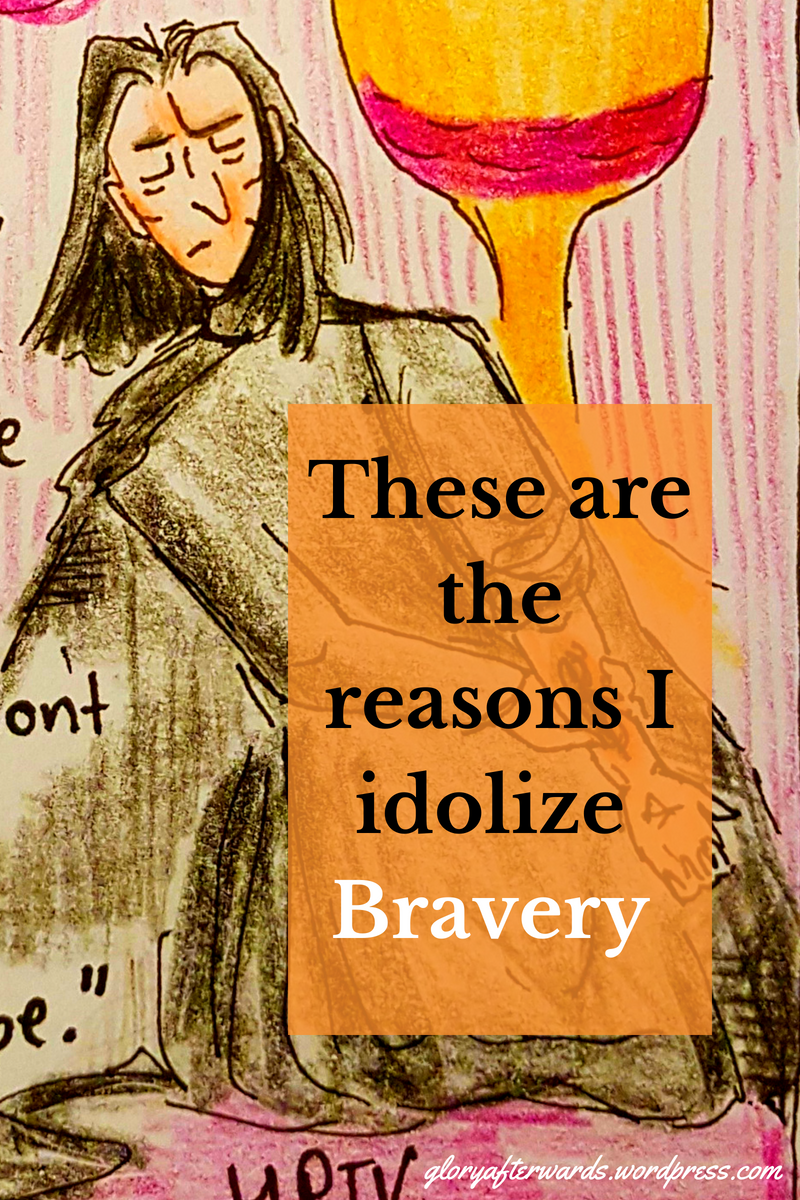


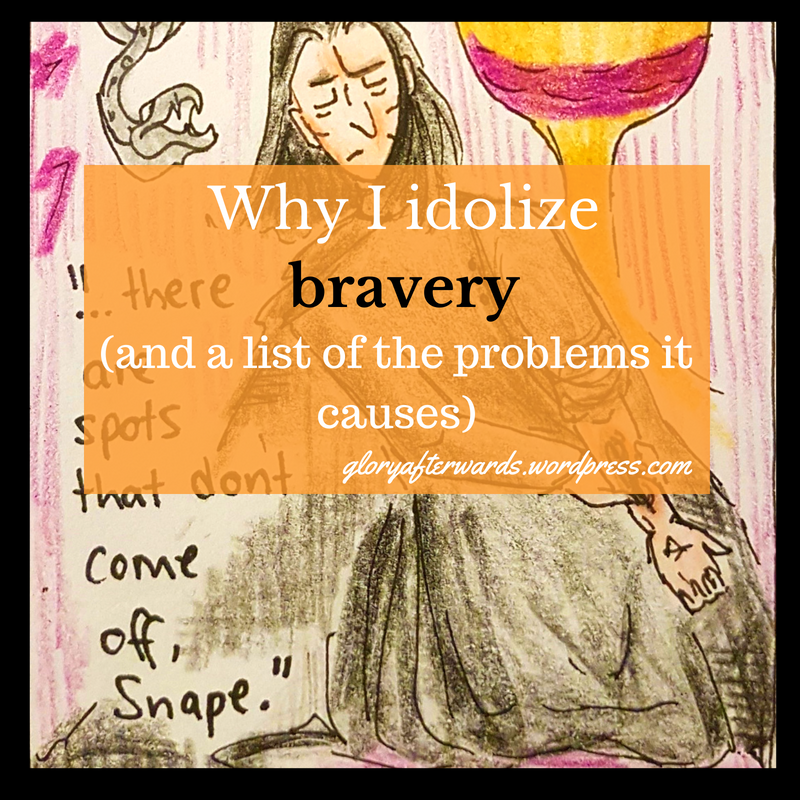
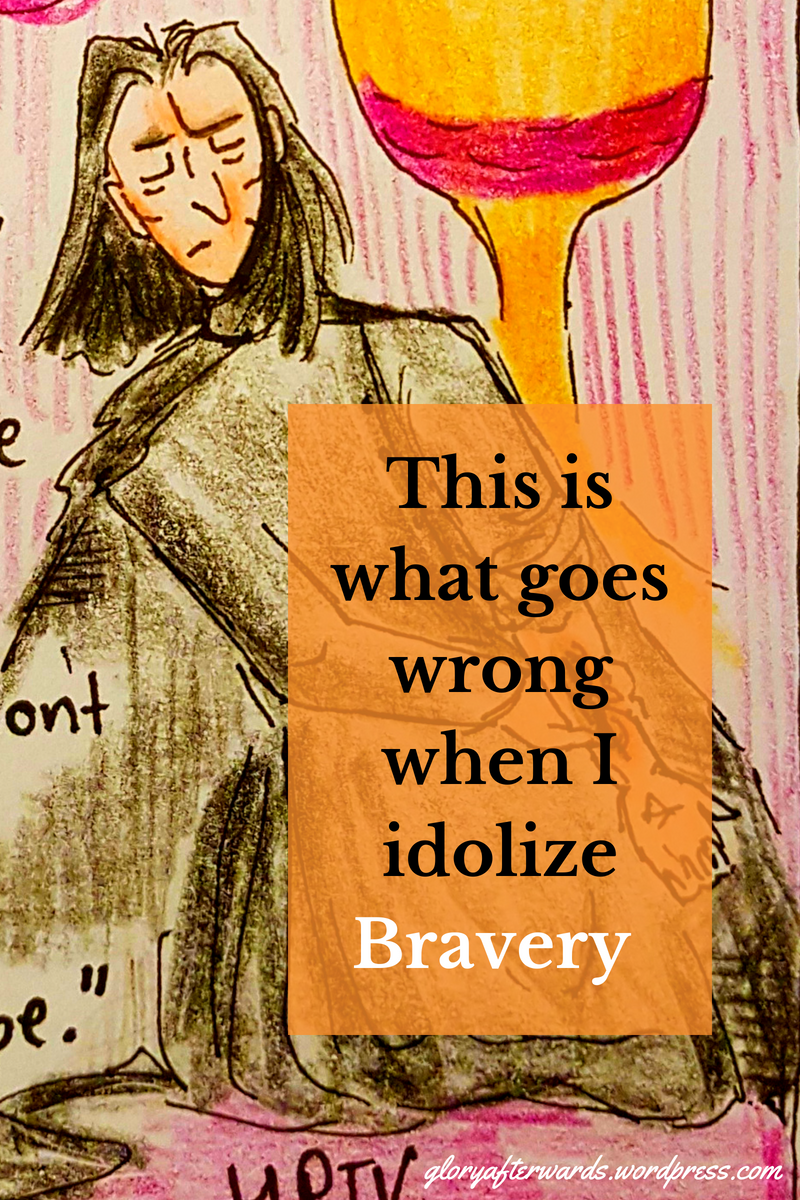
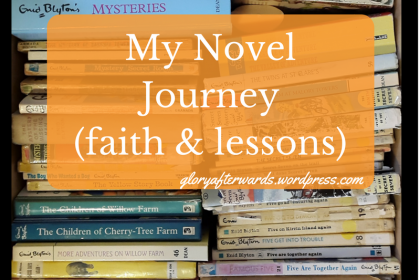
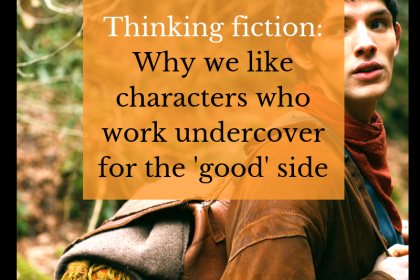
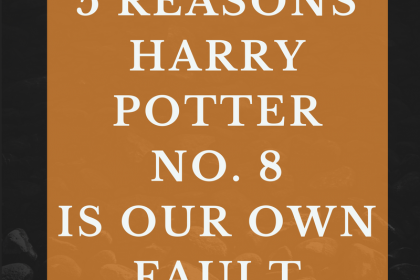
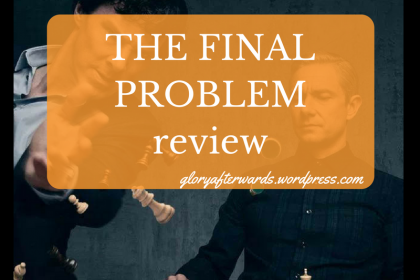
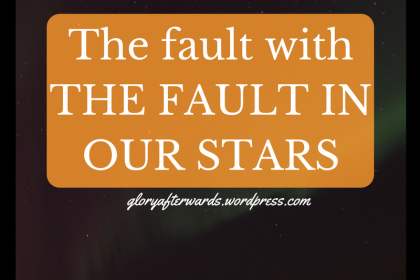
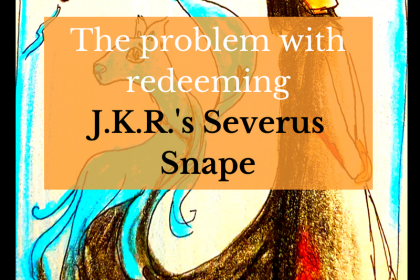
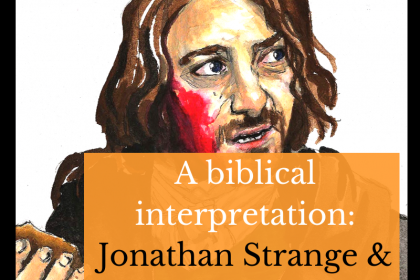

Like the Corrie Ten Boom story of the father giving the train ticket to his daughter at the end of the journey when she needs to show it – as opposed to at the beginning of the journey when she doesn’t need it yet – God will give the resources you need for bravery, not when you don’t need it, but when you do. Diana
Oh, I don’t remember that part of the story! Yes – am so thankful that bravery ultimately rests on God and not me 🙂
[…] Why I idolise bravery (and the problems it causes) […]
[…] Sydney Carton – A Tale of Two Cities […]
[…] don’t think there’s many of us who can deny that there is a certain ‘glory’ in fighting on another’s behalf. It can easily make us feel ‘all heroic’ and, (sometimes even […]
[…] Example 3: Harry Potter […]